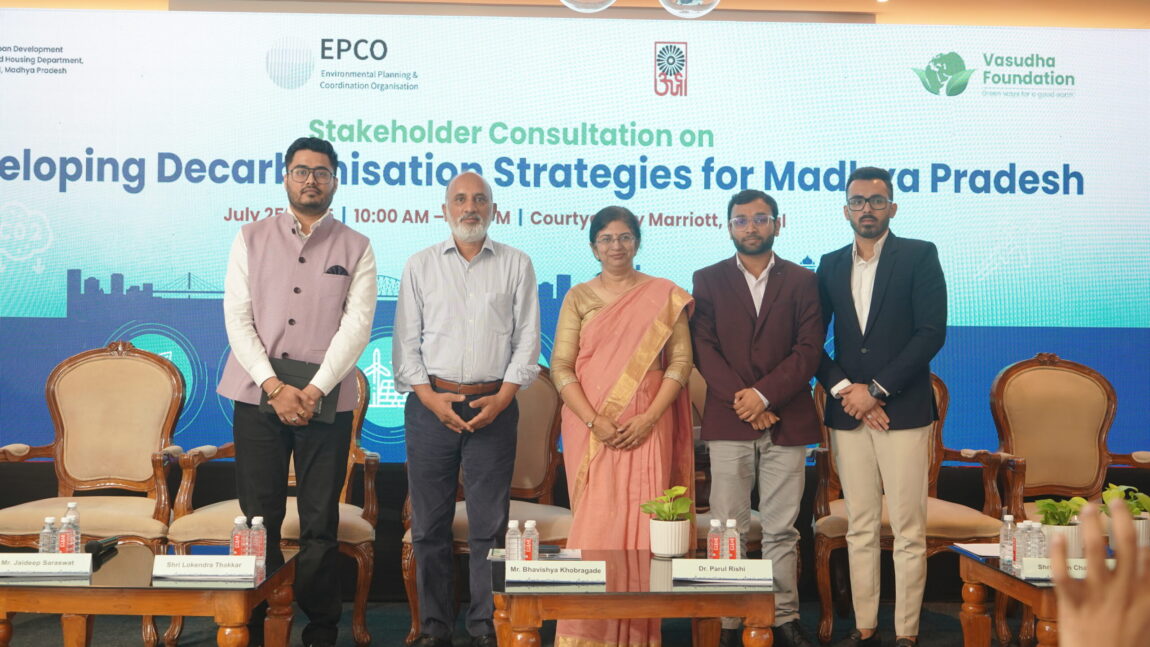25th July, 2025 | Bhopal
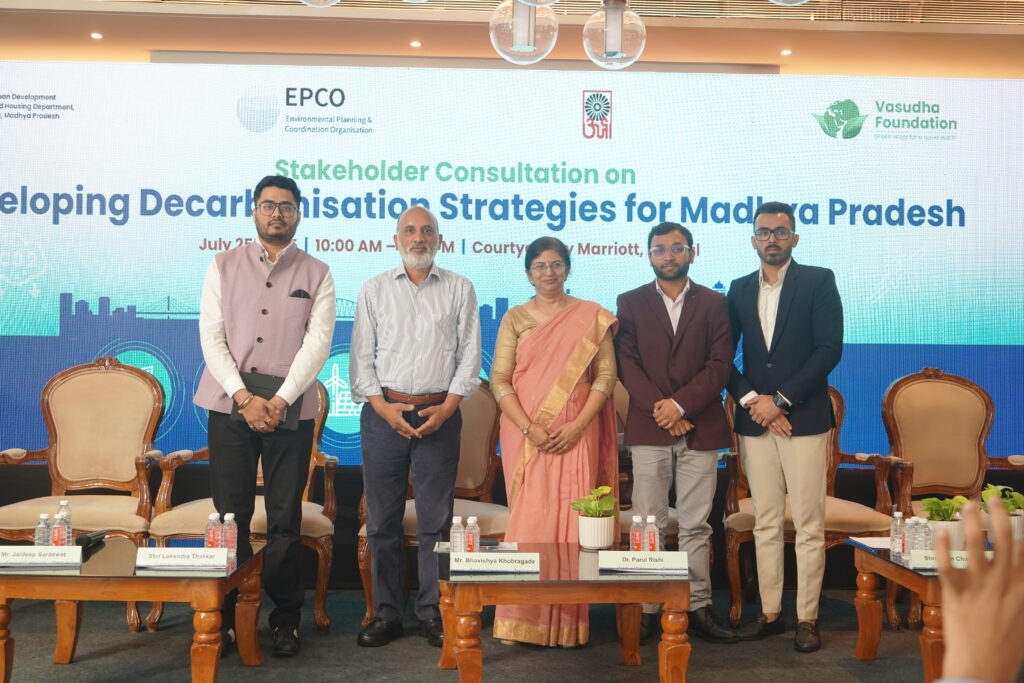
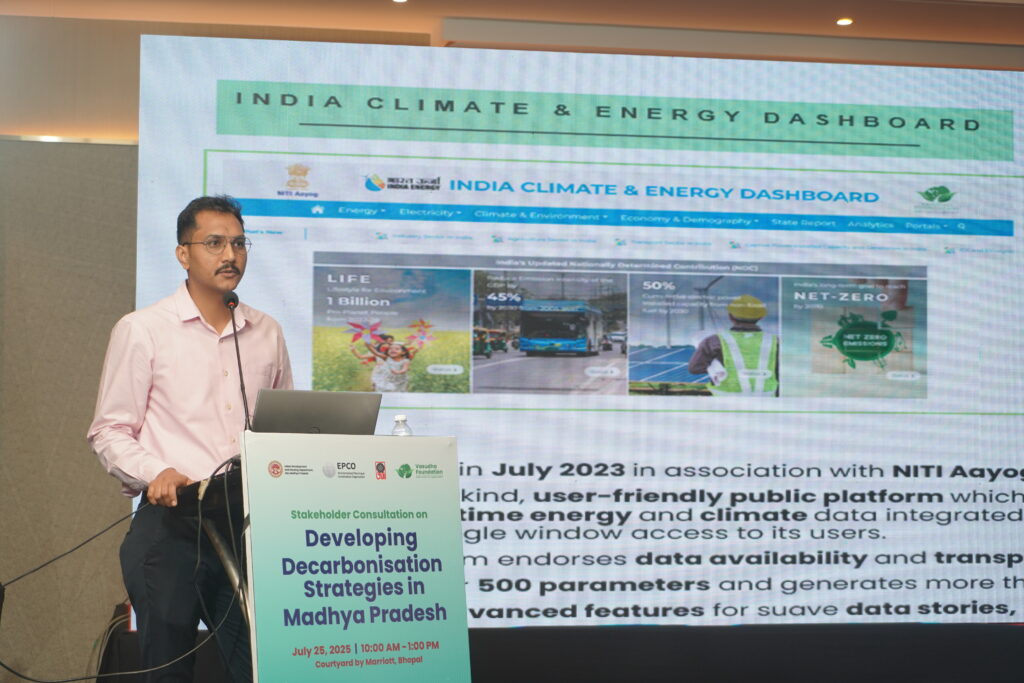
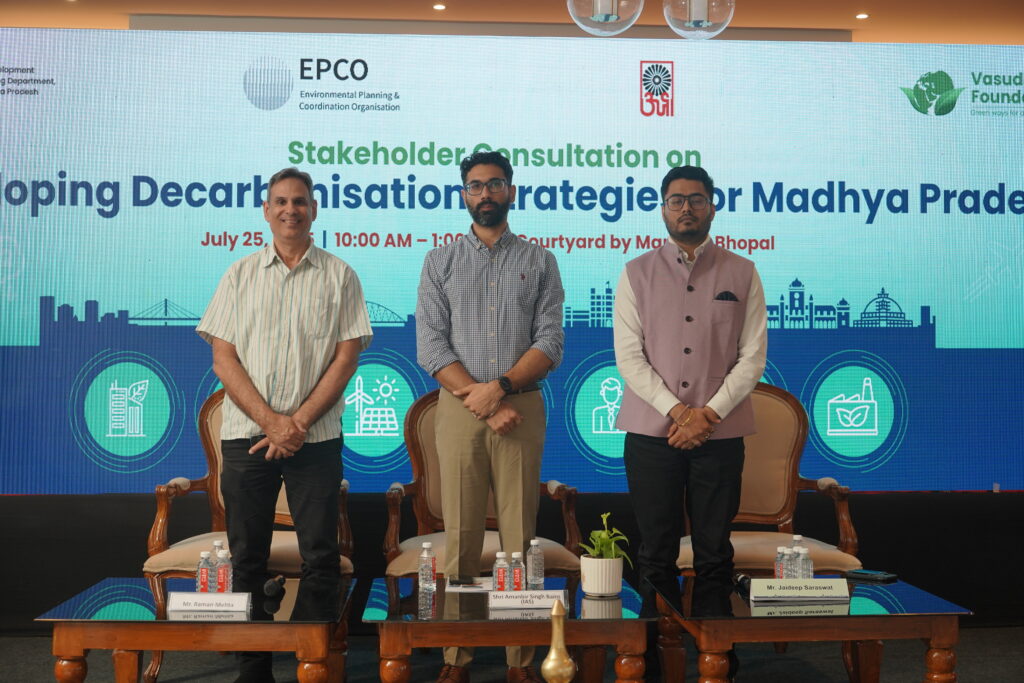
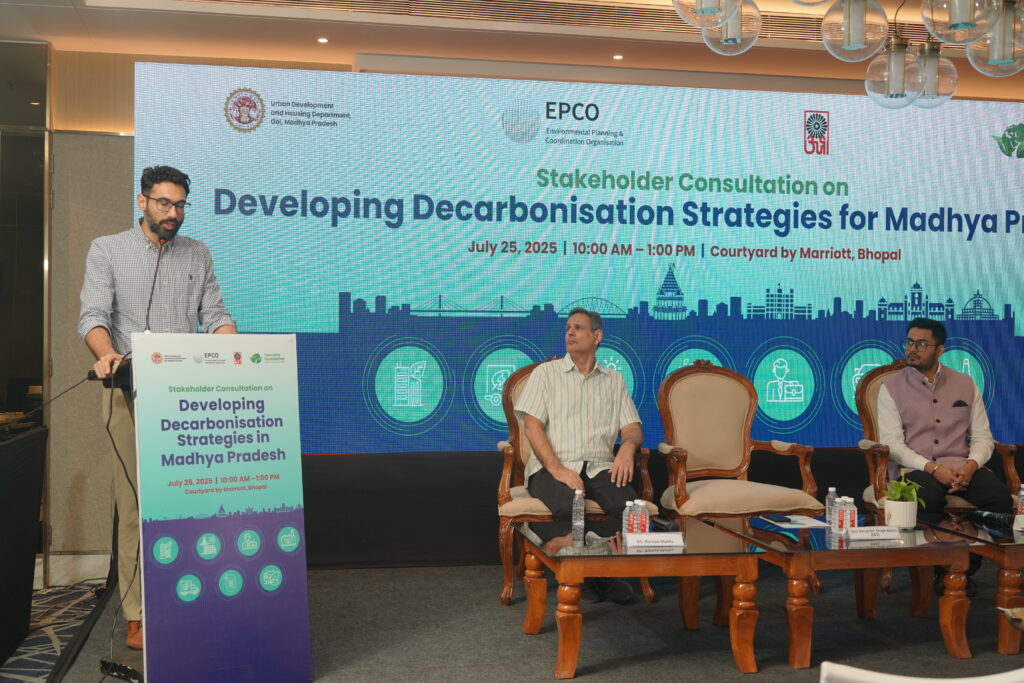
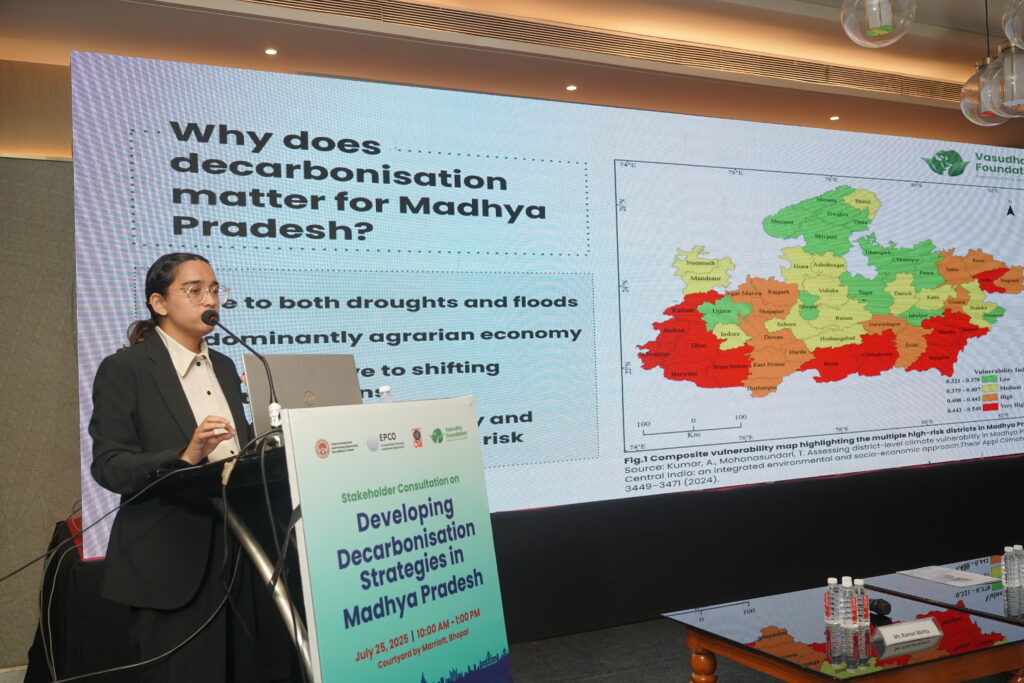
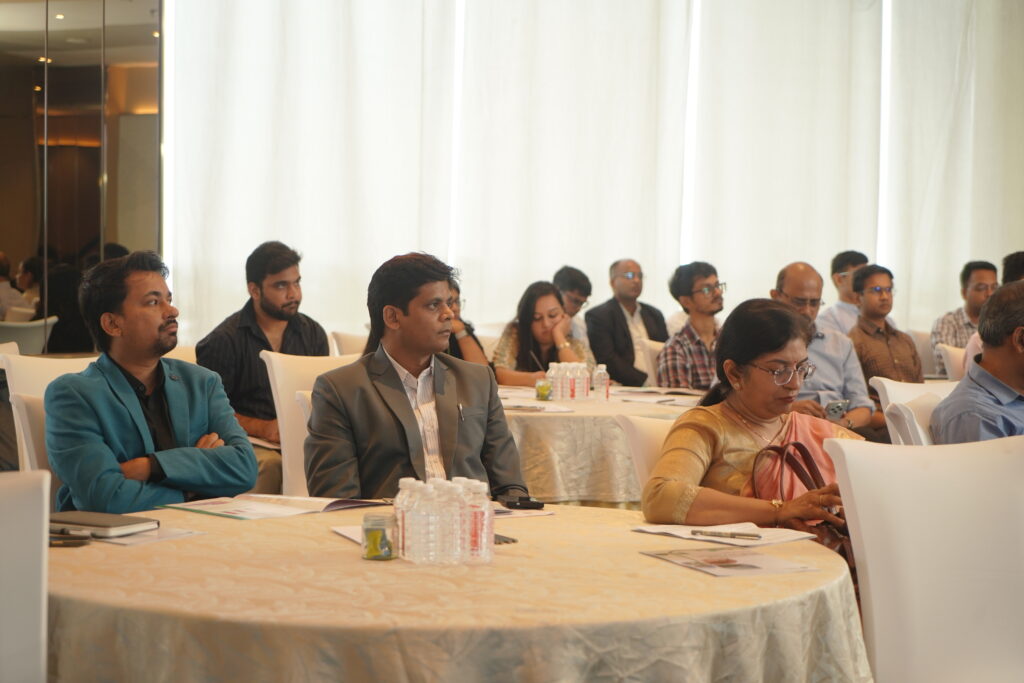
Vasudha Foundation, in collaboration with the Madhya Pradesh Urja Vikas Nigam Limited (MPUVNL) and Urban Development and Housing Department (UDHD), Government of Madhya Pradesh, and Environment Planning and Coordination Organisation (EPCO) organised a state-level workshop on ‘Decarbonisation Strategies and Sectoral Interventions in Madhya Pradesh‘ in Bhopal to explore actionable low-carbon development pathways.
The workshop centered around aligning state efforts with India’s Long-Term Low-Carbon Development Strategy. Discussions emphasised integrating sector-specific targets—such as electrification of the transport sector—into the State Action Plan on Climate Change (SAPCC) framework. From renewable energy and sustainable mobility to energy efficiency and data-driven governance, the sessions underscored the need for holistic, cross-sector collaboration to enable a just and inclusive energy transition.
The session began with opening remarks by Mr Raman Mehta, Programme Director, Vasudha Foundation, followed by Mr Jaideep Saraswat, Associate Director, Vasudha Foundation who provided a contextual framework for the discussions ahead. Mr Amanbir Singh Bains, IAS, highlighted the growing role of solar energy in Madhya Pradesh, driven not only by environmental concerns but also its integration into commercial sectors. He stressed the need for renewable energy interventions in agriculture, referencing schemes like KUSUM C1 and C2. While the potential for renewables is significant, he pointed to challenges, especially in balancing conventional and renewable energy sources. Mr Bains advocated for the efficient use of DISCOM funds, expansion of rooftop solar into commercial spaces, promotion of PPP models for EV charging, and increased consumer awareness. He emphasised the importance of protecting the state’s forested areas, addressing stubble burning through biofuel policies, training a skilled workforce, and ensuring that technology-driven regulations and inter-departmental coordination guide the decarbonisation agenda forward.
Mr Rahul Patidar and Sana Khan from Vasudha Foundation presented on the theme “From Data to Decision-Making and Opportunities for Madhya Pradesh”. They delivered an insightful presentation highlighting the importance of leveraging data for informed decision-making in Madhya Pradesh’s energy and climate planning. They discussed the role of evidence-based approaches in identifying actionable opportunities for the state. The India Climate & Energy Dashboard (ICED), a joint initiative of NITI Aayog and Vasudha Foundation was showcased as a ready data and decision making tool.
A panel discussion on ‘Decarbonising Madhya Pradesh’s Transport Sector’ with Q&A moderated by Mr Jaideep Saraswat, Associate Director, Vasudha Foundation followed.
Esteemed Panelists included:
- Shri Lokendra Thakkar, Chief Scientific Officer, EPCO
- Dr Parul Rishi, Professor, Indian Institute of Forest Management
- Shri Vyom Chaturvedi, Founder, Mivasa
- Shri Pratham Dawar, Bhopal MC Member, All India Motor Transport Congress (AIMTC)
Key Takeaways from the event:
- Mobility solutions must be context-specific: Mobility innovations must align with local geography; past failures like Bhopal’s cycle project underscore the need for practical design.
- Inclusion of stakeholders is critical: For example, fleet operators should be actively involved in shaping policies related to trucking sector decarbonisation. Zero Emission Trucks (ZETs) are gaining momentum, and operators are willing to transition, provided they are part of the decision-making process.
- Understanding public perception is crucial: User surveys and the “wisdom of commons” are essential for shaping effective and inclusive climate strategies.
- Effective decarbonisation needs coordination and capacity: Decarbonisation requires multi-sectoral planning, skilled workforce development, and strong inter-departmental collaboration.
- Circular economy should begin with core sectors: Apply circular economy principles first to energy and industry before expanding to other sectors like agriculture.
- Policy must be grounded and phased: Focus on achievable short-term goals and avoid overreliance on market-driven approaches.
Replicable Models: Battery refurbishment is key to circularity. MP’s diverse geography makes it a strong candidate for scalable decarbonisation models.




